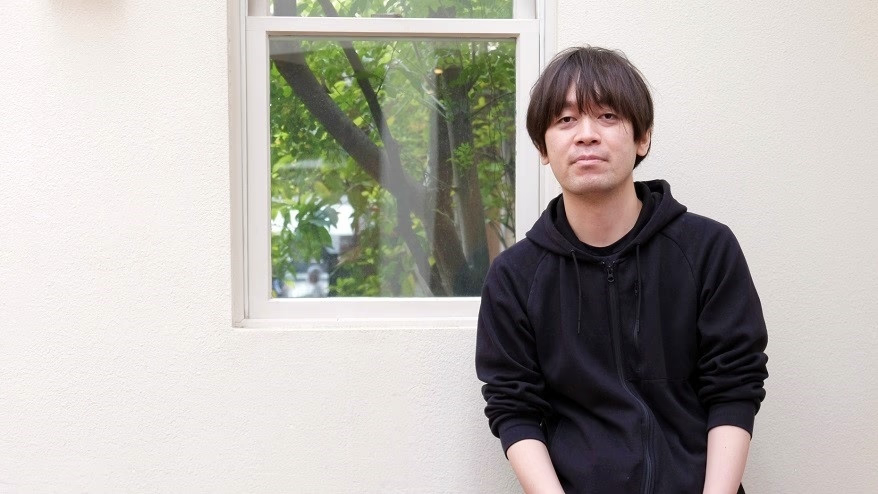こんにちは。京都在住のライター・杉本です。
京都は盆地なので、夏の湿度はバツグンです。まちでは「蒸しおすなぁ」とはんなり言うたはりますが、ぬくいゼリーみたいに重たい空気のなかを泳ぐのはなかなか骨が折れます。
さて、そんなグチはいいとして。
今回は、コーダーの丸山智之さんにインタビューをしました。
本連載では、モノサスがフルフレックス制度を導入して4年目、そしてフルリモートになってもう1年。働く時間と場所を自分たちで決められるようになったモノサスのメンバー。それぞれの自律したワークスタイルのあり方、「会社」という場、あるいは組織に対する意識の変化を聞いています。
働く時間と場所が変わったことで、丸山さんの働き方はどんな風に変化したのでしょうか。 ゆったり話す丸山さんのお話を、齊藤あかねさんと一緒に聞かせていただきました。
フルフレックスで考えた「自由」と「責任」
杉本:丸山さんのお仕事はコーダー。フルフレックス制度が導入されたときは、コーディングファクトリー部(CF)で、当時はマネージャーだった児嶋さんのもとにおられたそうですね。働く時間が自由になってどんな変化がありましたか?
丸山:そうです。たぶん、コーダーって一番フルフレックスを享受できるというか、一番自分の時間を自由に扱える職種なのかなと思っていまして。僕は朝が弱かったり、通勤電車が苦手だったりするので、13〜14時から22時くらいまで働くかたちにさせてもらっていました。今、振り返るとそれはいい働き方ではなくて、他の方に迷惑をかけてしまったのですが。
杉本:なぜ、「いい働き方ではなかった」と思っているんですか?
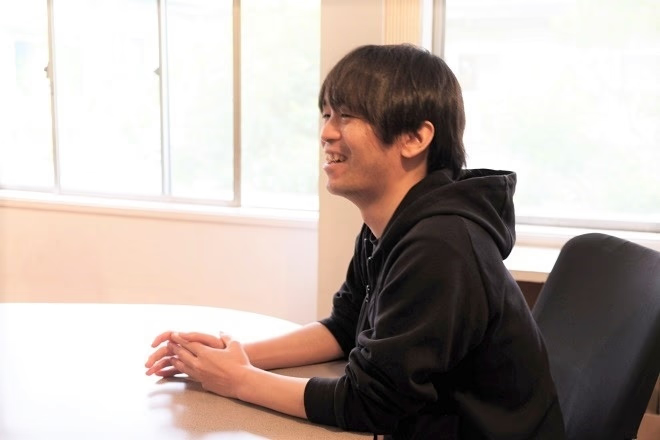
丸山:えーとですね。みんなと働く時間をシェアしているという意識がちょっと薄かったというか。連絡が取れなくなって「丸山さんは今どこにいるんですか?」みたいな状態になったことがありました。
杉本:クライアントさんは午前から働いているけど、丸山さんは午後からしか出社していない。連絡が取れない時間ができてしまったんですね。CFのメンバー間でも、誰が何時に出社してくるのか把握し合っていない状態から始まったということでしょうか。
丸山:そうですね。そこから、児嶋さんから「代々木にいるのか、自宅にいるのか。所在ははっきりしてください」とお願いがあって、改善していった感じですかね。
杉本:フルフレックスという制度がどーんと始まって、みんながそれぞれの解釈で動いたら不都合が起きたので、自由にしていいけれど共有するルールをつくっていこう、と。
丸山:自由だけじゃなくて、一緒に働くという感覚はそこから身についたのだと思います。
杉本:どうしたら、みんなで気持ちよく働けるかを考えられるようになっていった感じでしょうか。その後も、基本は午後出勤ですか?
丸山:はい、リモートワークが始まるまではそうでしたね。けっこうがんばって午前中に行くときもあったけれど、基本的には午後出勤という夜行性のスタイルで働いていました。
通勤の心理的負担がなくなった分のリソースを仕事へ
杉本:リモートワークになってからは、通勤電車に乗らなくてよくなりましたよね。生活に変化はありますか?
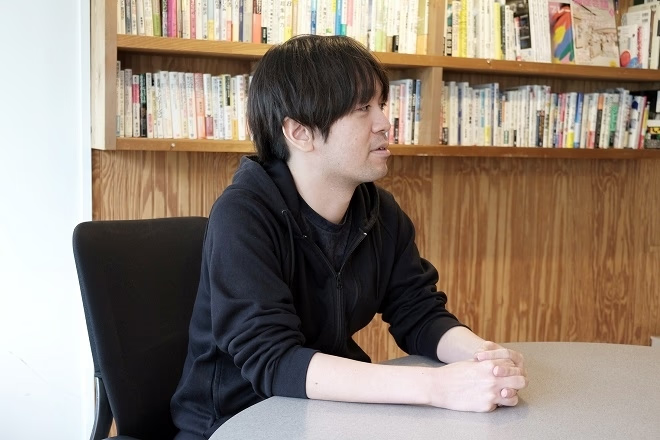
丸山:実は、リモートワークになってから規則正しくなりました。基本的に朝10時くらいから仕事を始めていて、一般的な会社のスタイルと同じくらいに働けるようになっています。
通勤していた頃は夜遅くまで働いていたので、その流れで朝起きるのも遅くなっていたんですね。最近は、朝7、8時には起きているという、昔の自分からすると本当に信じられない感じですね。案件が多いときは、夜10時頃まで仕事してしまうこともありますが、バランスがいいときは10〜19時でぴしゃっとやめられます。
杉本:ご自宅の仕事環境はどんな感じなんですか?
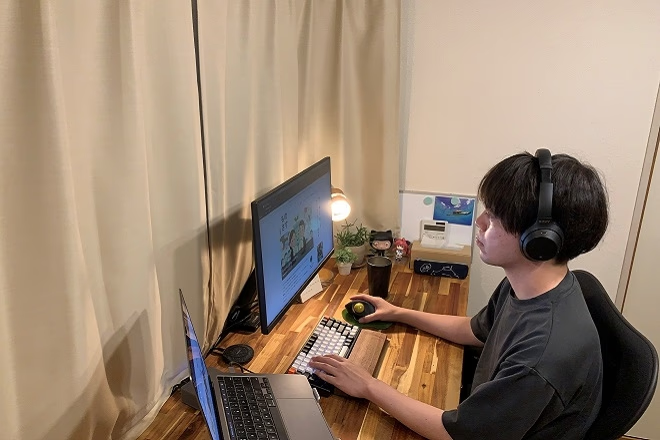
丸山さんのご自宅にある仕事部屋。なんだかすごく仕事しやすそう...!
丸山:リモートワークが始まった当初は、1Kの部屋に住んでいたので、仕事とプライベートの境界線がなくなって気がおかしくなっちゃいそうになって。引越しをして仕事部屋を設けることにしたんです。それからは、仕事部屋に出たり入ったりすることでスイッチを切り替えられるようになりました。
杉本:オフィスにいると他の人と一緒に仕事をするけれど、自宅ではひとりですよね。その部分での環境変化についてはどうですか?
丸山:僕を含めて、エンジニアにはチャットでやりとりする文化があるので、オフィスにいても「確認お願いします」ってチャットで完結していたんです。だから、リモートワークになったからといって、寂しくてソワソワするということはなかったかなと思います。
杉本:なるほど。じゃあリモートワークになったことによる、一番大きい変化ってなんですか?
丸山:なんですかね? 通勤するときの心理的負担が無くなったので、そのリソースを仕事に使えることでしょうか。僕は田舎出身なので、隣の人と肌が触れ合うほどすし詰めになることや、首都圏の通勤ラッシュ特有のちょっとイライラした空気がつらいんですよね。
杉本:わかるなぁ……。あともうひとつ、モノサスって一緒にご飯を食べたり、飲みに行ったりすることが多かったと思うのですが、集まる機会がなくなったことに対する物足りなさはないですか?
丸山:たしかに。CFでも、仕事が終わった後に「飲みに行こうぜ」っていうのはけっこう頻繁にありました。そういう意味では仕事のストレスの吐きどころというか、みんなでいろいろ気持ちを共有できるところがなくなったのは残念だなと思います。
「巣立ち」を思いとどまらせる仲間たちの存在
杉本:リモートワークで自分の仕事に責任をもって仕上げられるなら、フリーランスでもいいんじゃないか?という考え方もあると思うんです。それでもなお、この会社で働きたいと思うのはどうしてですか?
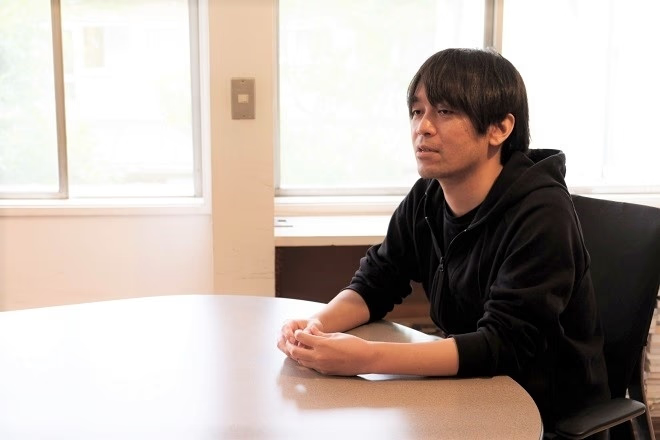
丸山:あー、そうですね。フリーになるというか、この場所から巣立つことをわりと頻繁に考えていた時期はやっぱりありました。「いろんな技術を吸収しきって、今ここにいる意味あるのかな?」って。だけど、「今、会社にいて一番やりたいことはなんだろう?」と考えると、技術が好きな仲間と一緒に仕事をしたいというか。
昨年から、Web制作のなかでフロントエンドが得意なメンバーが集まってユニットを組んで、自分がリーダーになったんですね。これは、会社にいるからこそできることだと思います。
杉本:5年前に伊藤さんが書いた記事によると、丸山さんは「フロントエンドエンジニアになりたい」とモノサスに応募されたそうですね。入社されてから、Web制作関連の記事を読んでシェアしたり、セミナーに参加したり勉強もされていた、と。
丸山:最近は、いったんその辺のお勉強をお休みしている感じはあるんですけど、たしかにいろいろ勉強し続けないと、太刀打ちできなくなっちゃう業界ではあるので。20%の危機感と、80%くらいは単純に自分の興味で学んでいる感じですね。
杉本:伊藤さんの記事、すごくあたたかいなあと思って読みました。上司だった伊藤さんや児嶋さんのことはどう思っていましたか?
丸山:ふたりともふだんは本当に優しい人で、僕がよくない行いをしたときはきちんと叱ってくれる方たちです。僕は新卒で、社会人経験なくこの会社に来たというのもあって、社会人としてのマナーなどもすごく教育してくださってありがたい存在でした。
杉本:フロントエンドエンジニアの道を歩んでもう8年。今はもう一人前というか、プロになられたわけですが、今やっているお仕事についてどう思っていますか?
丸山:いろんな思いが交錯している感じはありますね。もちろん面白いですけど、しんどいことも多々あります。楽しさ半分、つらさ半分みたいなところですかね。
次のステージは「自分たちから何かをつくり出すこと」
杉本:大分からひとりで上京して、入社したときアルバイトだったのに、今はフロントエンドエンジニアに興味がある仲間とユニットを組んでリーダーを務めているって、想像できなかった未来ですよね。
丸山:そう考えてみると、まあなかなかいい感じなのかなって(笑)。
杉本:ものすごくいい感じだと思います!今、この段階に来て次に目指したいステージは?
丸山:僕も今、そこをはっきりイメージできていないというか。そのイメージを思い浮かべるためにいろいろもがいている感じですね。
杉本:8年間を振り返ったときに「あそこでステージが上がったな」という仕事は思い浮かびますか?
丸山:いくつかあるなと思います。ひとつは、2016年に徳島・神山町で「ものさす塾」の講師をしたこと。人に教えることを通して、ソースコードをすらすら読めるようになったり、自分自身のコーディング手法や理論への迷いがなくなり、迷ったときの判断も早くなったと思います。
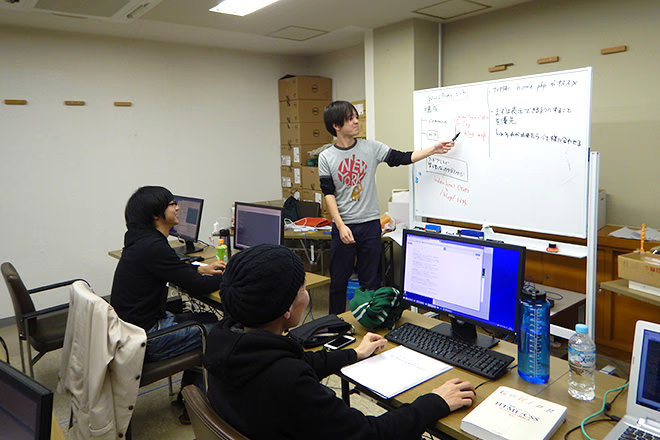
ものさす塾で講義していたときの丸山さん
もうひとつは、昨年に担当したシステム構築をする案件です。CFでいつも受けている案件とジャンルが異なっていて、修正や追加対応も多かったのですが、やりきったことでひとつステージが上がった手応えがありました。
杉本:じゃあ、次にステージが上がるときも「やったことがない経験をする」ことが鍵かもしれませんね。今のユニットでやってみたいことはありますか?
丸山:今は、クライアントから受託した案件を制作して納品する仕事をしていますが、新しいプロジェクトとして自分たちから何かをつくり出せるといいのかなと思っています。Webサービスになるのか、アプリになるのかはわからないんですけど。「なんかアイデアはあるっぽいな」と思うんですけど、まだはっきりイメージができていないです。個人的には、VRやARとかちょっと近未来的なものに興味があるので、そういう何かがやりたい気持ちはありますね。
杉本:最後に、モノサスってどんな会社だと思っていますか?
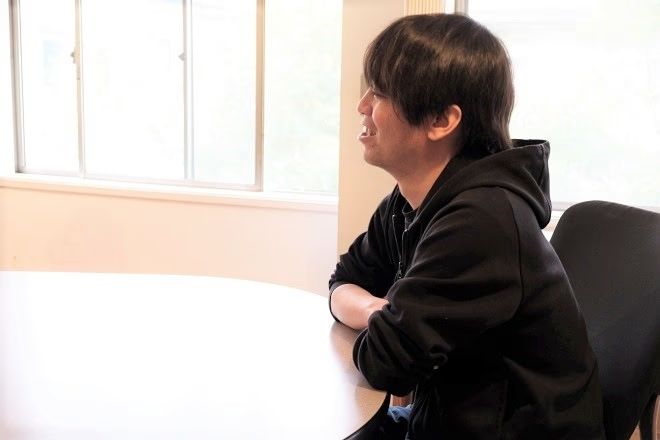
丸山:自分は新卒入社でモノサスしか知らないので「ああ、そうなんだー」って受け入れてきたんですけど、よくわかんない会社ですよね。Web制作をしているかと思えば「monosus 社食研」もありますし。ただ、社食研もいきなりできたというよりは、食に関するバックグラウンドのある真鍋さんがいるから始まったことなので、自分としては特に驚きはなかったですね。
杉本:「どんな会社か」はわからないけど「誰がどんな仕事をしているのか」ははっきりしている。そこがモノサスらしいのかなと思います。今日はありがとうございました!
リモートワークとの相性には、自宅の環境や仕事の内容、その人の性格などいろんな要素があると思うのですが、丸山さんはすごくハマったんだろうなと思いました。今後も、リモートワークが常態化していくなら、仕事部屋づくりを考える人が増えていくんだろうな。
村上さんに続いて、丸山さんもゆったりお話する方だったのですが「きっとタイピングの速度はすごく速いに違いない」と想像しています(こっそりドアの隙間から見てみたい)。会社って「与えられた仕事をやる」というイメージが強いけれど、「自分たちがやりたいことをやる場所」にもなれるなら、すごくいいなあと思います。今まさに丸山さんが「イメージをがんばっている」という「自分たちからつくり出していく何か」が、かたちになる日がとても楽しみです。
